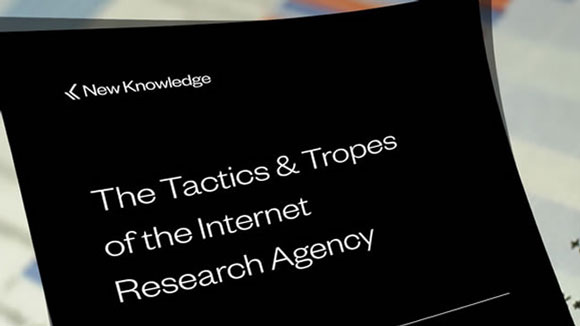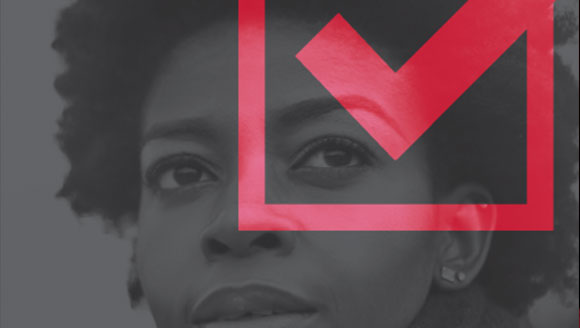The 2016 Bounce Back: Increasing Local Election Engagement for Nationwide Change
Historically, protest and protest movements have played an important role in translating anger into action and in forcing the powerful to pay attention and in righting wrongs. From strikes to boycotts and marches, these people-powered movements have functioned as critical change agents. However, protest devoid of organization is merely disruption. Protests movements must shift into social movements that employ a variety of strategies in service of large-scale, sustainable, and systemic change.
The National Urban League’s get-out-the-vote initiative, the “Bounce Back” campaign, was modeled on the organization’s core belief that protest must co-exist with “an overwhelming electoral expression at the ballot box to codify demands for a more just and equitable society.” Understanding the high stakes of the 2018 midterm elections, the Los Angeles Urban League Young Professionals (LAULYP) participated in several on-the-ground activities in alignment with the Bounce Back campaign.
In the days leading up to the midterms, LAULYP partnered with the Los Angeles Urban League (LAUL) and its guild to register voters in South Los Angeles. We also hosted a lecture by Lorrie Frasure-Yokley, Ph.D., an associate professor of political science at UCLA, who spoke on the attitudes of Black voters concerning voter identification laws since many of our members were unaware that ID is not required to vote in California or that voter ID laws varied so much between states. She stressed the importance of civic organizations in spreading racially relevant political information. Dr. Frasure-Yokley also discussed the millennial vote as a significant demographic to observe in the midterm elections given Black men and women’s political engagement and policy preferences. Her talk sparked a resolve in our members to critically engage with any information encountered on the internet and other media sources.
LAULYP partnered with local organizations, such as Empowerment Congress, to host “Woke Vote: Why Your Vote Matters” events, debating the various propositions Californians were expected to vote on and to connect individuals to community-based organizations that would be directly impacted by the implementation or rejection of a ballot proposition. These events made the importance of voting clear. The stakes were high for the politicians who sought the youth and African-American vote, but they were higher still for the voters who would experience firsthand the effect of newly implemented or rejected policies in their communities. Many first-time voters who needed guidance on interpreting the jargon riddled propositions reported feelings of empowerment after hearing from informed and non-partisan sources.
A week before the midterm elections, our committee hosted a “Politics and Pancakes” gathering where we educated our young professionals and community members on voter suppression in high-profile races, misinformation around California’s Proposition 10 (a rent control measure), and strategies to remain civically engaged after the November elections. We invited Kat Calvin, the founder of Spread the Vote; and Mike Gipson, Assemblymember of California’s 64th Assembly District and Assembly Democratic Caucus Chair, to speak. Calvin’s work with Spread the Vote, a nonprofit that obtains IDs for eligible voters in voter ID states, has benefitted low-income communities across the country. Asm. Gipson spoke of his journey to political office, delivering an inspiring message about the power of ordinary people to do extraordinary things and ignite change. He also shared the importance of elections as a powerful means of communicating with elected officials, adding that he gauges the support of his constituents by voter turnout. We ended the gathering with smaller group discussions and a debate over ballot propositions that directly affected young African Americans. The event made California’s jargon laden ballot propositions clear and provided a non-judgmental, non-partisan space to our members to discuss politics.
In December 2018, we began to draft our strategy for the 2020 election. LAULYP member, Zaneta Smith, MSW, associate director of the California Policy and Research Initiative, an African-American think tank, hosted “So What Now?: Holding Elected Officials Accountable,” a discussion centered on the ability of LAULYP to impact and advocate in local Los Angeles politics. To that end, our organization will host forums throughout the year that address issues of police accountability, housing and homelessness, healthcare, and student loan debt. LAULYP has also planned to conduct workshops on campaigning and running for office.
LAULYP centered its Bounce Back programming around the provision of reliable and accurate information from a variety of nonpartisan and special interest sources. As evidenced during the 2016 presidential election, misleading, or emotionally charged messages were deployed by bad faith actors to divide communities and prevent voters from making decisions that were in their best interests. In our capacity as young professionals, we have curated spaces, hosted events, and created programming that connects participants with change agents, academics, activists, and politicians. Each interaction was designed to stress the need to press forward in the movement for change and to empower our communities. Now more than ever, our divided electorate and society needs change—the kind that comes from civic engagement in all its forms. The LAULYP is committed to playing its part in harnessing the power of our local community into a mighty bounce of interest and engagement in politics and a surge at the polls.


 Equality Index
Equality Index  Senate Report
Senate Report  2020 SOBA Essays
2020 SOBA Essays  2019 Report
2019 Report 